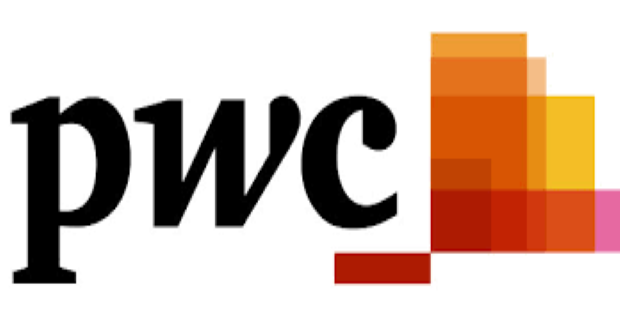News
PwC Report Reveals Brain Exports Presents New Optimal Development Path for Nigeria

Exporting Brain Capital to the global market will put Nigeria on the path to become a developed nation in record time. This is according to a new report by leading professional services firm, PwC Nigeria which analyses the best development path for the country.

After significantly evaluating relevant trends impacting today’s global business landscape and Nigeria’s unique circumstances as well as her position in the world today, the report titled Nigerian Brain Exports: The Optimal Path to Growing the Nigerian Economy’ recommends placing Nigerians in high-end Global Value Chains (GVCs) as the best path forward.
Brain export occurs when a Nigerian physically in Nigeria is inserted into global value chains and exchanges their brain capital for foreign currency which is then remitted to the country where the talent is physically located.
With such a large population that has an average age of 19 years, Nigeria according to PwC has significant Brain Capital advantage, especially considering the ageing population in countries such as Germany, Japan, Italy and the United States. It is estimated that the worldwide working-age population will see a 10% decline by 2060.
Japan in particular tops this list with 28% of its population above 65 and Italy comes second with 23%. In contrast, only 2.7% of the Nigerian population is above 65 which means Nigeria is strategically positioned to supply labour to the global market, thus presenting a strong comparative advantage.
Andrew S. Nevin(PhD), Partner & Chief Economist, PwC Nigeria, said: “Nigeria can transition from a developing to a developed nation within 10 to 20 years. To achieve this however, the country must seek and follow a path different from the traditional development path.
“We believe that the traditional strategy for development is not the most efficient path to improve the quality of life for Nigerians. It takes too long to deliver the expected benefits and Nigeria has not been successful in following this path. Most developed countries adopted the traditional path, but it required significant financial investments spread over a long period. Unlike these countries, Nigeria lacks the finances and cannot afford to waste time.
Given the times we live in, with advancements in research with technology and changes in the ways of working, there is a new optimal development path, one that is strengthened by changing circumstances and Nigeria’s unique assets and attributes. That path is one where Nigeria exports Brain Capital into higher value-added global services markets.”
With case studies of India and Kenya and a few local examples of companies already exporting Brain Capital from Nigeria and actively participating in the GVC’s, the report created a plausible scenario in which Nigeria captures 17% of the global programming and software development jobs. The earnings that will accrue to Nigerians performing these jobs is about $50 billion.
Based on the market size and the growth potential, Nigeria should have a target of two million remote workers inserted into GVCs within ten years. This number the report reckons would drive growth in other sectors of the economy through the increased purchasing power of the people inserted into the GVC.
According to the report, it is essential that the talent plugged into GVCs are not in a few selected locations but adequately distributed across the country to ensure prosperity for the nation.
Importantly, the report opines that Nigeria needs to start treating education as an infrastructure for development, not a social service, especially digital education, as screen-based interactions have become as fundamental as reading and writing.
The report acknowledged that it might be complex for the government to tax Brain Export workers at the moment. But it noted that the advantages outweigh that concern. With increased Brain Exports, burdens such as extreme poverty and high unemployment would lessen, and the government would also gain indirect tax benefits, like Value Added Tax.
News
New Study Reveals How Moniepoint Powers Nigeria’s Downstream Oil Sector with Same-Day Settlements and Working Capital Boost

In a move to strengthen Nigeria’s downstream oil and gas sector, Africa’s all-in-one financial platform for businesses and their customers, Moniepoint Inc. says it is transforming how petrol stations across the country manage payments, access credit, and track inventory through innovative financial solutions.

As the largest distribution network for financial services in Nigeria, the leading banking and payments platform trusted by million in its latest case study titled, “Fueling the Nation: How Moniepoint Powers Nigeria’s Oil and Gas Industry”, reaffirmed its commitment to providing digital payment solutions and business management tools to improve operational efficiency in Nigeria’s downstream sector.
The study released recently examined how petrol stations play a crucial role as vital distribution points for fuel in Nigeria, especially in areas with limited access to alternative energy sources. Over 90 per cent of passenger and freight movement in Nigeria is by road, literally fueled by petrol stations that facilitate an average of 41 to 47 million litres of petrol every day.
The downstream oil and gas sector has been considered as the lifeblood of the Nigerian economy, however, for decades, petrol station operators have grappled with the “T+1” settlement cycle, where funds from card payments are only accessible the next day. In an industry with razor-thin margins and the need for immediate restocking, this delay often leads to “dead tanks” and lost revenue.
According to the case study, Moniepoint has bridged this gap by introducing same-day settlements, ensuring that station owners can access their funds instantly to pay suppliers and keep pumps running. The report further reveals that 90.9% of petrol stations now utilize POS terminals as standard infrastructure, with digital channels accounting for 43% of all fuel payments nationwide.
The Moniepoint case study on Nigeria’s downstream oil and gas sector provides very insightful commentary on critical aspects of running a petrol station, including payment systems, inventory management, and funding challenges.
Giving insight into the report and its relevance to the nation’s energy segment, Managing Director, Moniepoint Microfinance Bank, Babatunde Olofin, noted that the study seeks to deepen policy engagement, provide actionable intelligence on critical success factors needed for the nation’s socio-economic growth across different verticals.
Olofin noted, “We are pleased to release this comprehensive report on Nigeria’s downstream sector. Moniepoint’s reason for being is to create financial happiness and power dreams. Reports like this move us in that direction, enabling us to support critical infrastructure that keeps the nation moving.
“Looking at the relevance, with data on their business transactions and our business management tools, petrol stations can effectively plan their inventory and availability, knowing exactly when to stock up and ensuring operations run smoothly to serve more customers.
“By providing fuel retailers with the financial tools they need, Moniepoint is creating a future where access to reliable fuel distribution is improved and represents more than a fundamental right for all in an equitable and efficient system.”
Some other Key insights from the report include: The Liquidity Gap: 1-in-3 station owners identify access to credit as their biggest recurring challenge.
Credit Success: Moniepoint has disbursed millions of Naira in working capital to the sector with a 99.81% repayment success rate.
These tools have enabled nearly three in five fuel stations nationwide to transition from cash-dependent, manually-operated businesses into digitally-enabled enterprises with reliable access to both payments’ infrastructure and growth capital.
This study by Moniepoint comes on the heels of others like the previous case studies on family-owned businesses, South-East’s Onitsha Market, community pharmacies, women-owned businesses, North-East agriculture and the definitive Informal Economy Report, which collectively demonstrated how digital payment solutions are transforming Nigeria’s commercial landscape across diverse sectors and market structures.
Moniepoint’s ongoing commitment to financial inclusion and economic development has positioned it as a catalyst for growth across Nigeria and beyond. The company processes billions in transactions monthly and continues to expand its reach, supporting millions of businesses with payments, banking, credit, and business management solutions.
News
FG Mandates Shared Funding for N1.98trn Electricity Subsidy

Federal Government has directed state governments to begin sharing the cost of electricity subsidy alongside the Federal Government.

It was gathered that payments for the subsidy will now be funded through the Power Assistance Consumers Fund (PCAF), a government-backed pool created to subsidise electricity bills for low-income and vulnerable consumers.
The fund is designed to replace blanket subsidies with targeted support, improve affordability amid rising tariffs and stabilise the power sector.
More than 18 states are already operating electricity regulatory agencies, while others are preparing to do so. The states include Lagos, Ondo, Osun, Ekiti, Edo, Delta, Bayelsa, Akwa Ibom, Cross River, Abia, Anambra, Imo, Kogi, Niger, Nasarawa, Plateau, Gombe and Jigawa.
The Director-General of the Budget Office of the Federation, Mr. Tanimu Yakubu, disclosed this in Abuja at the opening of the 2026 Post-Budget Preparation workshop on the Government Integrated Financial Management Information System (GIFMIS).
Speaking in an address read on his behalf by the Director of Expenditure Social, Mr. Yusuf Muhammed, Yakubu said states that enjoy the political benefits of electricity subsidy must also contribute to covering the financial gap created by the policy.
“Mr. President has directed that we operationalise a clearer framework to share the cost of electricity across the federation, so the burden is not treated as an open-ended fiscal residual — I mean federal residual,” he said.
“If you want a stable power sector, we must pay for the choices we make. When tariffs are held low, a gap is created. That gap is a subsidy, and a subsidy is a bill.”
He added: “In 2026, we will stop pretending that this bill can be left to the Federal Government alone, especially where the policy choice or the political benefit is shared across tiers of government.”
According to him, the President has ordered the activation of the electricity sector’s legal framework to ensure subsidy burden-sharing is practical and transparent.
“This means subsidy costs must be explicit, tracked and funded, so they do not return as arrears, liquidity crises or hidden liabilities in the market,” Yakubu said.
“It also means that if any tier of government chooses affordability intervention, the responsibility must be clear, agreed and enforceable. This is not punishment. It is an alignment.”
He further warned MDAs to make subsidy-related costs visible in their planning.
“The implication is simple: make subsidy-related costs visible in your planning and submissions. Do not push liabilities into the market as arrears or unfunded commitments,” he said.
Yakubu also disclosed that President Bola Tinubu has directed a review of Nigeria’s Fiscal Responsibility Framework to make fiscal rules more dynamic and enforceable.
“Fiscal rules are not a slogan; they are the guardrails of government,” he said.
“Without guardrails, spending becomes impulsive, debt becomes casual, and the budget becomes a statement of intent rather than a tool of delivery.”
He added that capital projects in 2026 must be delivery-ready and properly financed.
“A long list of projects is not a development strategy. It is often a map of disappointment. What citizens feel is delivery, completed roads, reliable power, functional schools and working hospitals,” Yakubu said.
Reacting to the development, the Director of Media and Communications of the Nigerian Governors’ Forum, Mr. Yunusa Abdullahi, said: “We are reviewing the context and content of the information. We will not be making further comments on it.”
News
Spain Bars Under-16s from Social Media in Digital Safety Crackdown

Spanish Prime Minister Pedro Sánchez has unveiled plans to ban children under 16 from social media platforms, mandating robust age verification systems as part of a sweeping legislative package to curb toxic online content.

Speaking at the World Government Summit in Dubai, Sánchez declared platforms must erect “real barriers that work” beyond mere checkboxes, shielding minors from the “digital Wild West” where they navigate unprotected.
The proposal, set for approval by Spain’s Council of Ministers next week, amends a draft bill in parliament and holds social media executives legally accountable for illegal content like disinformation, hate speech and child pornography.
The measures introduce tools to track harmful material spread, while criminalising algorithm manipulation that amplifies such content for profit.
“Spreading hate must come at a legal, economic and ethical cost platforms can no longer ignore,” Sánchez emphasised, vowing governments would stop turning a blind eye.
Spain joins Europe’s hardening stance on youth online access, mirroring Denmark’s under-15 ban plans from last fall, France’s push for restrictions by September, and Portugal’s new bill requiring parental consent for under-16s.
The moves signal a continental shift to “regain control” of digital spaces amid rising concerns over youth vulnerability.

 Telecom3 days ago
Telecom3 days agoTelecom Operators Invest Over $1Bn on 2,850 New Sites in 2025 – NCC

 E-Financial3 days ago
E-Financial3 days agoIf Capital is the Answer, What Exactly is the Problem with First Holdco

 E-Financial3 days ago
E-Financial3 days agoAmaanah Finance to Unveils Non-Interest Banking Services Today

 E-Financial2 days ago
E-Financial2 days agoAccidental Billionaire Opts for Jail Instead of Returning Money Credited Him by Mistake

 News3 days ago
News3 days agoNSCDC Hands over Fake Crypto Currency Trader to EFCC

 General News3 days ago
General News3 days agoFirst Trustees to Host 8th Islamic Estate Planning Clinic in Abuja

 News3 days ago
News3 days agoAlakija’s Flourish Africa Provides N300m Grants for Women Entrepreneurs

 News2 days ago
News2 days agoUS Set to Deport 79 Nigerians on Criminal List



























